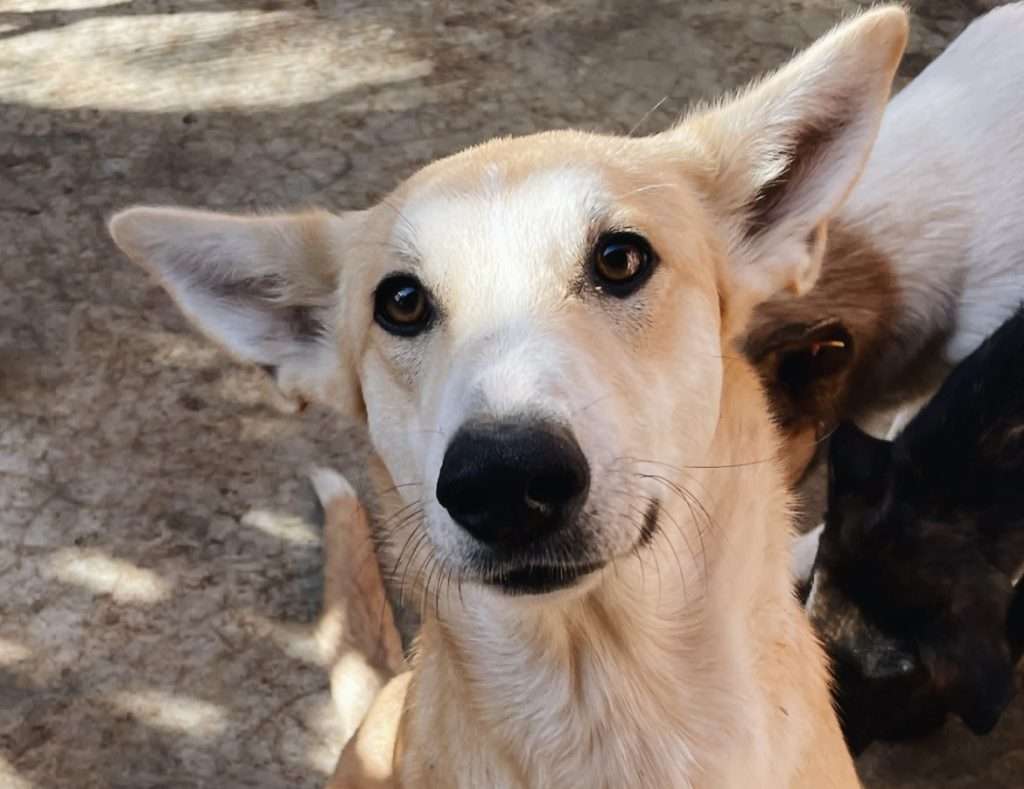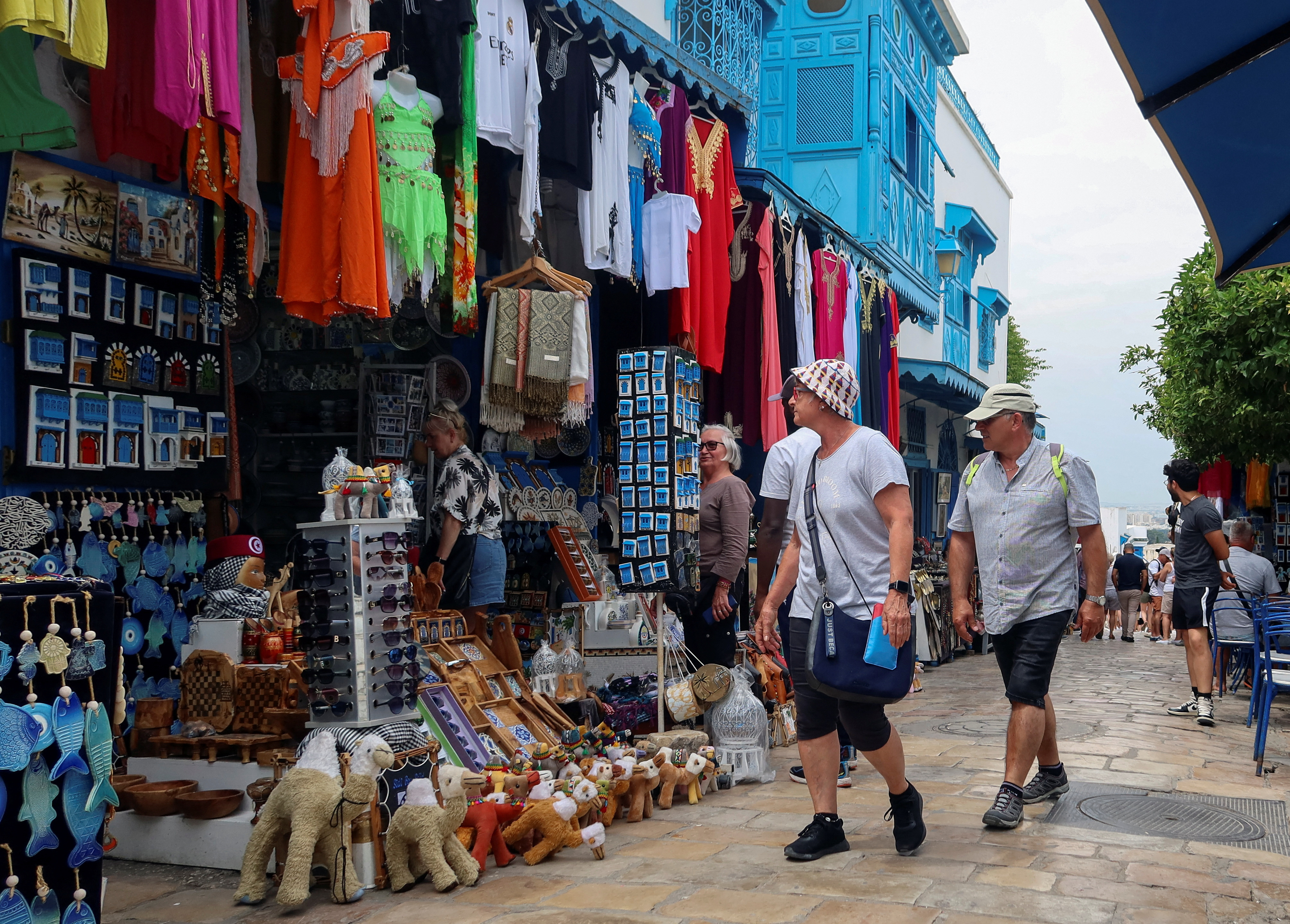Why Moroccan Media still won’t report on viral dog story

Story from Jam Press (Dog Extreme Rescue) Pictured: Hara. VIDEO: Cyclist couple take stray dog back to UK after it ran alongside them for 100km Two cyclists have taken a stray dog back to the UK after it ran alongside them for an entire 100km bike ride. Veterinarian Emily Lawson, 28, was on a bike-packing trip with her partner Constantijn, 26, also a vet, when a street dog began following them through the Moroccan desert. Now - after four months of waiting and more than £1,000 spent - Hara, the dog they couldn’t leave behind, has joined them in the UK. “We tried to say goodbye, but she made it clear she had chosen us,” Hannah, who lives in Plymouth, told NeedToKnow. “She ran 80km on the first day alone - even when her paws were raw. “We wrapped them in socks and she just kept going.” The pair were biking from Agadir to Tangier along a remote caravan route in November 2024 when Hara, a Moroccan Beldi, appeared outside their hotel at dawn. Hannah said: “I think I named her five minutes after we met. “We were leaving the Sahara and 'Hara' just stuck.” By the time they reached Zagora, it was clear to the couple that they couldn’t abandon their new little friend. Hannah said: “She followed us everywhere. “Waited outside restaurants, sniffed under doors to find us - it felt like she’d already decided we were her people.” Unable to find a safe home for her locally, the couple contacted Sunshine Animal Refuge Agadir (SARA), a rescue shelter that agreed to take Hara in if the couple could sponsor her care and eventual adoption. Hannah said: “Morocco was all she knew, and we really tried to rehome her there. “But the reality is that many people are scared of dogs due to the high rabies risk, and the rescues are overwhelmed.” Hara stayed at the shelter for four months, undergoing vaccinations, desexing and rabies bloodwork. It cost the couple around £300 initially and £52 each month thereafter. In total, Hannah says they spent roughly £1,500 bringing Hara home. She arrived in the UK on 7 April. Hannah said: “She flew, bussed, trained and ferried her way to the UK - she was nervous around elevators and revolving doors, but otherwise, she’s loving life. “She even jumped straight on the bed.” The couple say Hara’s journey has taught them the importance of compassion. Hannah added: “There’s a Jane Goodall quote I love that says, ‘What you do makes a difference, and you have to decide what kind of difference you want to make.’ “That’s how we felt with Hara - we just couldn’t walk away. “She’s not a stray anymore. She’s ours.” ENDS EDITORS NOTE: Video Usage Licence:(NON-EXCLUSIVE) We have obtained a non-exclusive licence from the copyright holder. A copy of the licence is available on request. Video Restrictions: None.
Months after a stray dog captured hearts by following her future family through the Sahara, Moroccan media has yet to touch the story, a silence that could signal a more sinister campaign.
On May 8, a U.S. outlet called Newsweek reported on a story of a stray dog, now named Hara, who gained virality after she earned her adoption by following a group cycling through the Sahara desert for over 100 km.
“We just gave her a pat and said hello,” one of them recalled. “And then she just kept following us.”
Remarkably, Hara followed the group for about 50 kilometers continuously. But after that, the group noticed she could barely walk. “She ripped her feet up pretty bad and just didn’t want to get back up,” said one of the travelers. “We were in the middle of the desert and realized we couldn’t just leave her there. We had to help her keep going.” The bikers improvised, securing socks to her feet to protect her paws.
During overnight stops, Hara remained close, refusing to enter tents or be left behind. “Even when we went to get dinner, she had to come too,” they said. By the morning, she would still be sleeping next to the tent.
“We found her at the start of November, and actually only spent a week with her before we took her to a refuge in Agadir and finished our bike trip,” one of the bikers, Emily Lawson, told Newsweek.
While Hara had won their hearts, the Group, originally British citizens, were thousands of miles from their home.
Upon reaching the city of Zagora, they planned on finding her a home, but quickly learned that dogs are not common pets in Morocco, much less street dogs. This poses a dilemma, as the Kingdom is home to 3 million stray dogs, meaning finding an adopter would be nearly impossible.
The group, unwill to leave her behind, prepared Hara for transport, including vaccinations, blood tests, and rabies clearance, a process that took three to four months. She then set out for the UK, where she was adopted, with the travellers noting that she “really just fits into our life.”
Though the wholesome story may have caught attention online, Moroccan fringe media has only now picked up the story, with Documorocco reporting it on September 12, while the country’s mainstream media giants have ignored it altogether. The silence could reflect efforts to deflect from the Kingdom’s brutal dog culling campaign.
According to animal rights groups, Morocco has been ramping up measures to cull the stray dog population ahead of the 2030 World Cup, as part of efforts to “clean up” and “modernise” the country.
In a June 20 interview with CNN, a 19-year-old girl, Amina, recalls that in her town of Irfane, “walking to school, I would pass pools of blood on the street…At a certain point, I realized it wasn’t normal to start your day stepping over dead bodies.” According to Amina, the killings have gotten especially bad in the last year. “There used to be occasional shootings every few months,” she said. “Now, they are more systematic. They kill dogs like it’s a sport – like people hunt ducks.”
In February this year, a coalition of 10 animal rights groups urged FIFA to address Morocco’s “increased capture and culling” of stray dogs. Celebrities like Ricky Gervais and Peter Egan have also condemned the killings on X, calling them a “slaughter.”
“Football fans around the world love dogs,” Minky Worden of Human Rights Watch told CNN. “Animal mistreatment could become a major PR issue if FIFA doesn’t take concrete action.” As the issue gains traction, the media’s silence could reveal efforts to shield the campaign from foreign eyes.
Newsweek, CNN, Documorocco, Maghrebi
Want to chase the pulse of North Africa?
Subscribe to receive our FREE weekly PDF magazine














